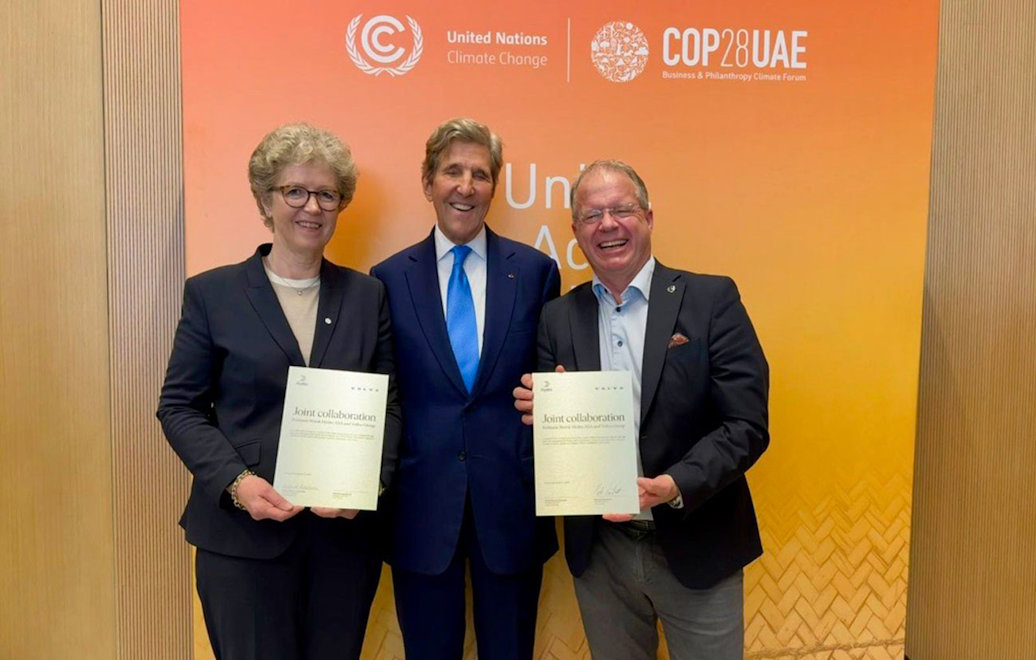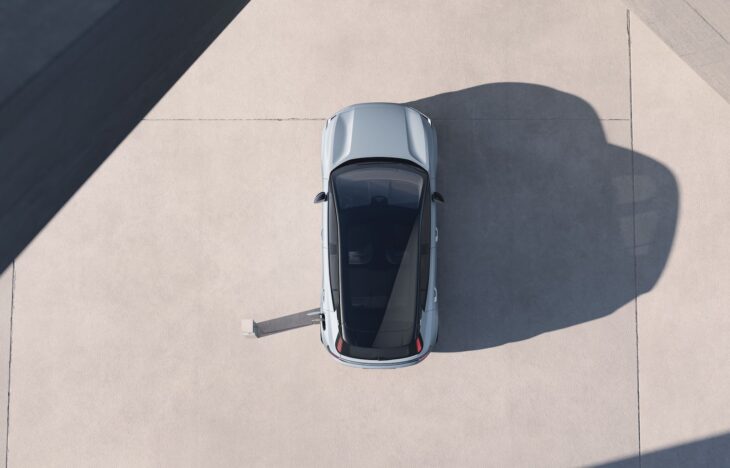Volvo Cars announced that it was doubling down on its sustainability action plan while at the 2023 United Nations Climate Change Conference (COP28) in Dubai, UAE. The company aims to cut carbon emissions per car by 75% by 2030 (compared to a 2018 baseline) and to become climate neutral by 2040. The company has already been making progress toward this goal. During the first nine months of 2023, Volvo lowered overall CO2 emissions by 19% per car compared with the 2018 benchmark.
“COP28 is a historic accountability moment for climate action,” said Javier Varela, chief operating officer and deputy CEO, Volvo Cars. “The world urgently needs to come together and act, to avoid the worst effects of climate change. We’re committed to doing our part and we call on corporate and political leaders around the globe to also do theirs.”
In order to meet its climate goals, Volvo plans to continue working towards its existing ambition to only sell fully electric cars by 2030, thereby eliminating tailpipe emissions from the model line-up. In addition, the company has become a member of the World Economic Forum’s First Movers Coalition (FMC), which is a global initiative aimed at harnessing the purchasing power of companies to decarbonize industrial sectors. With that in mind, the automaker is putting its purchasing power behind emerging clean technologies that will support the shift to near-zero emission aluminum. The company is also taking other actions, such as reducing carbon emissions throughout both its supply chain and its own operations (including logistics), aiming to reduce them by 30% each by 2030 (compared to 2018).
“We have previously used the COP summits to push collective climate action and COP28 will be no different,” said Jonas Otterheim, head of climate action, Volvo Cars. “What we and other like-minded companies are trying to do is develop and scale up transformational technologies to decarbonize sometimes ancient industrial processes. By joining the FMC and showing tangible progress in our partnership with SSAB, we hope to demonstrate that this vital shift is not just possible but is already underway.”
Utilizing Low-Carbon Aluminum
Volvo recently formed a strategic partnership with Hydro, which is also part of the FMC. The two companies will work together to support each other’s journeys towards zero emission value chains. This includes developing a roadmap towards supplying primary aluminium with an 80% reduced carbon footprint by 2030, compared to today’s global industry average.
Currently, Hydro produces primary aluminium with a carbon footprint of one fourth of the global industry average, which is 16.7 kg CO2e/kg Al. By 2030, the company aims to reduce emissions by a further 30% and deliver industrial scale pilot volumes based on emission free smelting technology. Committed to pioneering the green aluminium transition by 2050, Hydro’s ambition is to produce net-zero aluminium, while contributing to a nature positive future through initiatives on biodiversity, waste handling and land use.
“We are rethinking every step of our value chain to transform our industry and to enable our customers in creating truly decarbonized end products,” said Hilde Merete Aasheim, president and CEO of Hydro. “Every step matters on the road to zero — one example is exploring how Volvo Group’s innovative solutions can enable us to further reduce carbon emissions in our value chain.”

The partnership between Hydro and Volvo involves a number of sustainability goals and initiatives, including:
- Establishing a roadmap towards supplying near-zero aluminium ahead of 2030.
- Cooperating to enable greater use of low-carbon aluminium in Volvo’s production towards supplying net-zero aluminium in 2040.
- Validating new recycling standards for alloys, to optimize material reuse and exploring closed-loop value chains enabling more scrap to be utilized.
- Exploring how Volvo’s innovative transport solutions can be used in Hydro’s mining operations in Brazil to further reduce the carbon intensity of the aluminium value chain.
“We are committed towards our leading target to achieve a net-zero value chain by 2040,” said Martin Lundstedt, president and CEO of Volvo Group. “Access to low-carbon aluminium is another step forward. We truly believe that it is only by moving forward together, through a joint collaboration we have agreed here with Hydro, that we can make a positive impact on our climate.”

